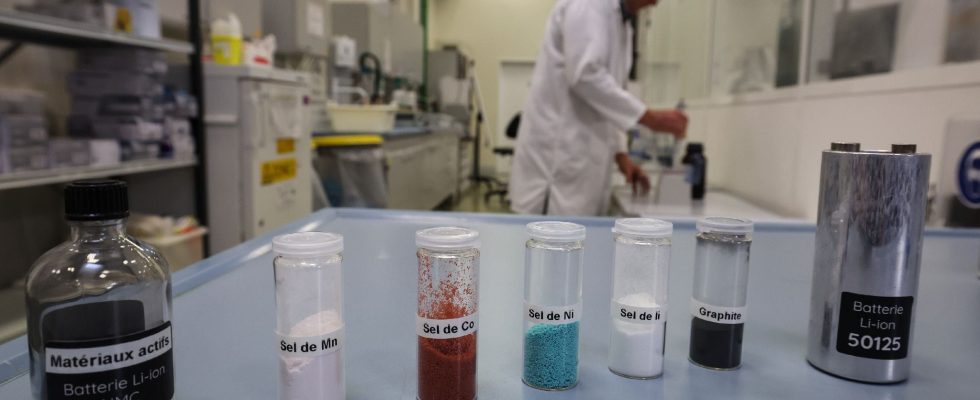What if the energy transition went better than expected? I clearly see the baroque aspect of such an idea at a time when, to use Pascal Bruckner’s expression, we are facing “a competition of terrors”. However, in this very real nightmare that the news has become, we can still find some reasons to draw a little hope. Thus, the prices of lithium, nickel and cobalt, three raw materials essential for the manufacture of electric batteries, are collapsing, which may suggest that the cost of the energy shift could be lower than expected. What is happening, and what lessons should we learn from it?
Accordion lithium lessons
As is often the case with raw materials, it is necessary to look to China, the main buyer, to understand. Let’s take the price of lithium. This metal is essential for the manufacture of batteries for electric and hybrid cars because it stores electricity remarkably. This is why it is sometimes called white gold. In 2020, lithium was priced at $6,000 per ton. Its price reached almost $85,000, before falling to less than $25,000 today. From 2020, faced with the dizzying demand outlook for electric cars, Asian automotive equipment manufacturers feared supply disruptions. They therefore built up gigantic stocks, which caused prices to soar. Today, these same manufacturers find themselves with stocks to sell, which is driving prices down.
Certainly, it would not be reasonable to deduce from these accordion strikes between storage and destocking a permanent downward trend. The fact remains that, for several weeks, the lithium market has shown no sign of excitement. In addition, global extraction and refining capacities for this component will increase in the coming years. Commodities are not completely price inelastic. One of two things: either prices remain low, and that’s good news. Either they are part of an upward trend, and supply will follow, which will limit the increase in prices. Capitalism can often solve the problems it creates on its own, as long as we agree not to hinder it too much. You have to have confidence in the system.
40 potential deposits in France
According to the consensus of analysts, demand for lithium should increase by around 20% per year at least until 2030. For prices not to suddenly and sustainably soar, supply – extraction and refining – increases by 20% each year. It is theoretically possible, but at the cost, however, of a colossal effort, particularly in Europe.
Australia now extracts 55% of lithium, followed by Chile (25%) and China (15%). But the Middle Kingdom refines 60%, which allows it to secure its position as leader in the global electric car market. It is of course possible to import Chinese refined lithium. What will happen, however, if relations between China and the West continue to become strained? Europe, starting with Portugal, Finland and Spain, is full of lithium. In France, white gold is present in the subsoils of the Massif Central and the Armorican Massif, as well as in Alsace. There would be, in total, 40 potentially exploitable deposits in France. Imerys, the French specialist in mineral processing, has announced the exploitation of a lithium deposit in Allier by 2027. It is a gigantic project, with slightly more expensive lithium at stake. than its Chinese counterpart, but respecting strict ecological standards.
Becoming a producer and refiner of essential raw materials for the ecological transition constitutes a magnificent industrial project for France. Our country could, in the 21st century, become a mining land again, to the benefit of our sovereignty and our prosperity. This project will obviously find activists to whom nothing will have to be ceded. Because it summons an imagination to Germinal, skillful teaching will be necessary. The mine and factory of tomorrow have nothing to do with what they were in the 19th century. We need to explain it now.
Nicolas Bouzou is an economist and essayist.
.
